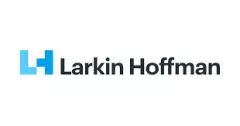The drama that is playing out in Wisconsin, the first state to grant public employees the right to form unions and engage in collective bargaining, certainly is breathtaking and, like a train wreck, it's hard not to pay attention to it. But, private sector employers would be well-advised to keep their eye on the ball – the real action that will affect them is happening in Washington.
The Obama Administration apparently has conceded that the Employee Free Choice Act (EFCA), a signature piece of legislation that it had hoped to bring to fruition in its first term, is effectively dead. The votes simply do not exist in the Senate to pass this proposed far-reaching change to the Labor Management Relations Act (LMRA). In particular, the provisions of EFCA that would have limited or eliminated the secret ballot election, which has been in the LMRA since 1947 and the final and binding "interest arbitration" provision to resolve disputes after impasse in bargaining, were non-starters.
But, the setback dealt to organized labor on EFCA has been more than made up through rulemaking, regulatory, and other Executive Branch actions that do not require the involvement of Congress. For example:
- In addition to legal posters that employers are required (or at least strongly encouraged in many ways) to post in their premises on such subjects as the minimum wage, OSHA rights, and the like, federal contractors of the Department of Defense (DOD), General Services Administration (GSA), and the National Aeronautics and Space Administration (NASA) are now required by rules implemented under Executive Order 1396 to include a poster that describes the rights of employees to form and join unions. The National Labor Relations Board (NLRB) has requested comments on a rule that would require all employers to post such notices.
- The NLRB now requires charged parties (mostly employers) in every case, not just exceptional cases, to publish a notice of the settlement of unfair labor practice charges electronically (i.e., via e-mail) if an employer routinely communicates with its employees in that manner. Previously, employers were required only to post the large blue and white poster on bulletin boards.
- The NLRB, now at its full complement of five Members, a majority of whom, by long-standing convention, were appointed by the current President, has signaled its intent to reverse certain precedential decisions issued by past Boards that were dominated by Republican Presidential appointees. For example, the Board is expected to reverse its 2002 decision in MV Transportation, which itself established a new "successor bar" ruling and may return to a rule that would give a union a reasonable period of time following an acquisition to deal with the new owner of the business.
- The Office of Federal Contract Compliance Programs (OFCCP) has adopted an "active case enforcement" compliance review procedure and now will select one in every 25 supply and service contractors for a full compliance review.
- The U.S. Department of Labor, Employment Standards Administration (Wage and Hour Division) has issued several important Administrative Guidances that overrule or supplant prior opinion letters issued under prior administrations.
- In the wake of the failure to pass the Paycheck Fairness Act last year, which would have significantly changed the way wage and hour cases involving Equal Pay Act claims could be litigated, both the Equal Employment Opportunity Commission (EEOC) and the OFCCP have announced that they will step up their enforcement efforts and have been given enlarged budgets for that purpose.
All of this is to be expected, of course, since every administration seeks to advance its political agenda. This is particularly the case in the labor and employment law arena, which is subject to extensive regulation by federal agencies. And, in the case of the NLRB, the Members and the General Counsel are appointed by the President, with the advice and consent of the U.S. Senate. Thus, the direction that is taken by the agency that has near-exclusive oversight over labor relations policy will tend to follow the direction set by the sitting President.
Likewise, all other federal agencies, such as the EEOC, OFCCP and DOL, that have regulatory and enforcement authority in a wide range of employment law matters can be expected to intensify their compliance and enforcement activities. So, while we are all transfixed on the walkout by state legislators in Wisconsin and the employees crowding into the state capitol's rotunda, employers should not forget that the federal government's labor and employment agenda remains on track.
The content of this article is intended to provide a general guide to the subject matter. Specialist advice should be sought about your specific circumstances.

